Best hotel credit cards of August 2022: Free nights and more
Why you can trust Credit Card
More Info
On this page
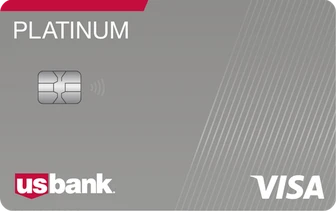
BEST FOR CUSTOMIZABLE REWARDS
U.S. Bank Cash+® Visa Signature® Card

Reward rate
5
5% cash back on your first $2,000 in eligible net purchases each quarter on the combined two categories you choose.
3
5% cash back on prepaid air, hotel and car reservations booked directly in the Rewards Travel Center.
-1
1% cash back on all other eligible purchases.
1
1% cash back on all other eligible purchases.
Intro offer
$200 bonus
Annual fee
$0
Regular APR
16.74% - 26.74% (Variable)
Recommended credit
Good to Excellent (670 - 850)
Pros
- Multiple rotating and fixed bonus categories, which can make it easier to earn rewards quickly
- The $200 sign-up bonus (after spending $1,000 within the first 120 days of account opening) increases the card’s first-year value
Cons
- The $2,000 combined spending cap each quarter for your chosen 5% categories limits your ability to rake in rewards
- Having to track and enroll in rotating categories can be a hassle for some
- New! $200 bonus after spending $1,000 in eligible purchases within the first 120 days of account opening.
- 5% cash back on your first $2,000 in combined eligible purchases each quarter on two categories you choose
- 5% cash back on prepaid air, hotel and car reservations booked directly in the Rewards Travel Center
- 2% cash back on one everyday category, like Gas Stations/EV Charging Stations, Grocery Stores or Restaurants
- 1% cash back on all other eligible purchases
- 0% Intro APR on purchases and balance transfers for the first 15 billing cycles. After that, a variable APR currently 16.74% – 26.74%
- No Annual Fee
- Pay over time by splitting eligible purchases of $100+ into equal monthly payments with U.S. Bank ExtendPay™ Plan.
- Terms and conditions apply.
ADDITIONAL FEATURES
Purchase intro APR
0% Intro APR on purchases for the first 15 billing cycles.
Balance transfer intro APR
0% Intro APR on balance transfers for the first 15 billing cycles.
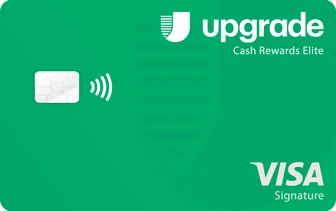
BEST FOR PERSONAL LOAN ALTERNATIVE
Upgrade Cash Rewards Elite Visa®

Reward rate
2.2
Earn 2.2% unlimited cash back on card purchases every time you make a payment
Intro offer
$200
Annual fee
$0
Regular APR
8.99% - 29.99% (Variable)
Recommended credit
Good to Excellent (670 - 850)
Pros
- You won’t need to use your reward earnings to offset any maintenance fees.
- You’ll earn a bonus after you open a Rewards Checking account and make three purchases with the card in your first 60 days.
Cons
- The high end APR range is well above average. That could prove costly if you don’t have the credit needed to qualify for the lower range and you end up carrying a balance.
- You won’t get a break on interest if you carry a balance since there are no intro APR offers on purchases or balance transfers.
- $200 bonus on your Upgrade Card after opening a Rewards Checking account and making 3 debit card transactions within 60 days.*
- New Feature: Pay your balance in full early each month and avoid interest with EarlyPay.
- Earn 2.2% unlimited cash back on card purchases every time you make a payment
- See if you qualify in seconds with no impact to your credit score
- No Fees – $0 annual fees, $0 activation fees, $0 maintenance fees
- Combine the flexibility of a card with the low cost and predictability of a loan
- Access to a virtual card, so you can start earning while you wait for your card to arrive in the mail.
- Contactless payments with Apple Pay® and Google Pay™
- Mobile app to access your account anytime, anywhere
- Enjoy peace of mind with $0 Fraud liability
- *To qualify for the $200 welcome bonus, you must open and fund a new Upgrade Rewards Checking Account and make 3 debit card transactions within 60 days of your Upgrade Card account opening. The bonus credit will be posted to your Upgrade Card as a rewards credit within 1-2 billing periods following the third debit transaction on your Rewards Checking account. Your Upgrade Card must be in good standing to receive the bonus.
ADDITIONAL FEATURES
Purchase intro APR
N/A
Balance transfer intro APR
N/A
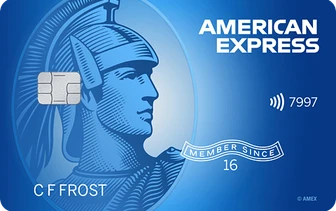
BEST FOR GAS
Blue Cash Everyday® Card from American Express

Reward rate
3
3% Cash Back at U.S. supermarkets on up to $6,000 per year in purchases, then 1%.
1
New! 3% Cash Back on U.S. online retail purchases, on up to $6,000 per year, then 1%.
-1
1% Cash Back on other purchases.
1
1% Cash Back on other purchases.
Intro offer
$200
Annual fee
$0
Regular APR
16.24%-27.24% Variable
Recommended credit
Good to Excellent (670 - 850)
Pros
- It carries one of the best combined cash back rates available at no annual fee at U.S. gas stations and U.S. supermarkets. Those two categories make up a big chunk of the average person’s budget.
- You can earn $7 back per month on The Disney Bundle streaming package, which includes Disney+, Hulu, and ESPN+ (each month you spend $13.99 or more on an eligible subscription, terms apply). To earn that much back in a month via the card’s 3 percent categories, you’d typically need to spend over $230.
Cons
- You’ll only earn 3 percent cash back on your first $6,000 in annual spending in each of the card’s bonus categories (then 1 percent). While that’s a high limit, it could hold you back if you’re sharing an account across multiple households.
- The card carries a 2.7 percent foreign transaction fee, so it’s not a good option if you’re looking for a single rewards card you can use at home and abroad.
- Earn a $200 statement credit after you spend $2,000 in purchases on your new Card within the first 6 months.
- No Annual Fee.
- Balance Transfer is back! Enjoy 0% intro APR on purchases and balance transfers for 15 months from the date of account opening. After that, 16.24% to 27.24% variable APR.
- 3% Cash Back at U.S. supermarkets on up to $6,000 per year in purchases, then 1%.
- New! 3% Cash Back on U.S. online retail purchases, on up to $6,000 per year, then 1%.
- 3% Cash Back at U.S. gas stations, on up to $6,000 per year, then 1%.
- Get $7 back each month after using your Blue Cash Everyday® Card to spend $13.99 or more each month on an eligible subscription to The Disney Bundle, which includes Disney+, Hulu, and ESPN+. Enrollment required.
- Terms Apply.
ADDITIONAL FEATURES
Purchase intro APR
0% on purchases for 15 months
Balance transfer intro APR
0% on balance transfers for 15 months
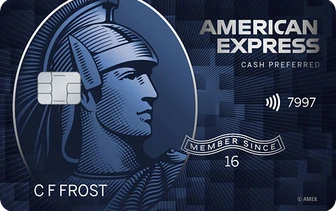
BEST FOR GROCERIES
Blue Cash Preferred® Card from American Express

Reward rate
6
6% Cash Back at U.S. supermarkets on up to $6,000 per year in purchases (then 1%).
1
6% Cash Back on select U.S. streaming subscriptions.
3
3% Cash Back at U.S. gas stations
0
3% Cash Back at U.S. gas stations
1
1% Cash Back on other purchases
Intro offer
$350
Annual fee
$95
Regular APR
16.24%-26.24% Variable
Recommended credit
Good to Excellent (670 - 850)
Pros
- The base reward program is uber-lucrative, making this card a good choice for people looking for long-term value.
- You don’t have to keep track of rotating spending categories or enrollment deadlines.
Cons
- There is no intro APR offer on balance transfers.
- You won’t earn the extra rewards for grocery shopping at major superstores and wholesale clubs, as those don’t count as U.S. supermarkets.
- Earn a $350 statement credit after you spend $3,000 in purchases on your new Card within the first 6 months.
- Buy Now, Pay Later: Enjoy $0 intro plan fees when you use Plan It® to split up large purchases into monthly installments. Pay $0 plan fees on plans created during the first 12 months after account opening. Plans created after that will have a fixed monthly plan fee up to 1.33% of each purchase amount moved into a plan based on the plan duration, the APR that would otherwise apply to the purchase, and other factors.
- Low intro APR: 0% intro APR for 12 months on purchases from the date of account opening, then a variable rate, 16.24% to 26.24%.
- 6% Cash Back at U.S. supermarkets on up to $6,000 per year in purchases (then 1%).
- 6% Cash Back on select U.S. streaming subscriptions.
- 3% Cash Back at U.S. gas stations and on transit (including taxis/rideshare, parking, tolls, trains, buses and more).
- 1% Cash Back on other purchases.
- Cash Back is received in the form of Reward Dollars that can be redeemed as a statement credit.
- $95 Annual Fee.
- Terms Apply.
ADDITIONAL FEATURES
Purchase intro APR
0% on purchases for 12 months
Balance transfer intro APR
N/A
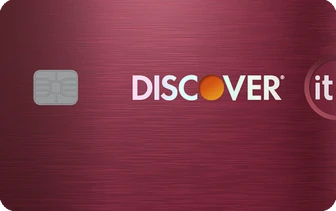
BEST FOR ROTATING CASH BACK CATEGORIES
Discover it® Cash Back

Reward rate
5
Earn 5% cash back on everyday purchases at different places each quarter like Amazon.com, grocery stores, restaurants, gas stations and when you pay using PayPal, up to the quarterly maximum when you activate.
1
Plus, earn unlimited 1% cash back on all other purchases – automatically.
Intro offer
Cashback Match™
Annual fee
$0
Regular APR
13.49% - 24.49% Variable
Recommended credit
Good to Excellent (670 - 850)
Pros
- Discover will match the cash back you earn at the end of the first year.
- There are a few cash back redemption options, including credit to your account and donations.
Cons
- You must enroll to take advantage of the bonus categories each quarter.
- There is a spending limit on your highest cash back category each quarter ($1,500 in combined purchases per quarter).
- Intro Offer: Unlimited Cashback Match – only from Discover. Discover will automatically match all the cash back you’ve earned at the end of your first year! There’s no minimum spending or maximum rewards. You could turn $150 cash back into $300.
- Earn 5% cash back on everyday purchases at different places each quarter like Amazon.com, grocery stores, restaurants, gas stations and when you pay using PayPal, up to the quarterly maximum when you activate. Plus, earn unlimited 1% cash back on all other purchases – automatically.
- New! Discover helps remove your personal information from select people-search websites. Activate by mobile app for free.
- Every $1 you earn in cash back is $1 you can redeem.
- New Intro APR: Get a 0% intro APR for 15 months on purchases. Then 13.49% to 24.49% Standard Variable Purchase APR applies, based on credit worthiness.
- No annual fee.
ADDITIONAL FEATURES
Purchase intro APR
0% for 15 months
Balance transfer intro APR
0% for 15 months
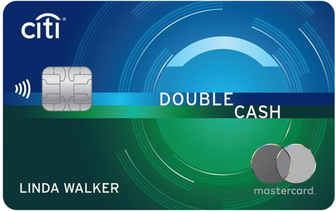
BEST FOR UP TO 2% CASH BACK
Citi® Double Cash Card

Reward rate
2
Earn 2% on every purchase with unlimited 1% cash back when you buy, plus an additional 1% as you pay for those purchases.
Intro offer
$200 Cash Back
Annual fee
$0
Regular APR
16.24% - 26.24% (Variable)
Recommended credit
Good to Excellent (670 - 850)
Pros
- You can convert your cash back earnings to Citi ThankYou points when paired with a card like the Citi Premier® Card, which can be redeemed for travel, gift cards and more.
- There are no spending category restrictions or rotating categories
Cons
- Your rewards can expire with this card if you don’t use it for a year.
- The sign-up bonus spending requirement is higher than you’ll find on many no-annual-fee cash back cards.
- Earn 2% on every purchase with unlimited 1% cash back when you buy, plus an additional 1% as you pay for those purchases.
- For a limited time, earn $200 cash back after spending $1,500 on purchases in the first 6 months of account opening.
- Balance Transfer Only Offer: 0% intro APR on Balance Transfers for 18 months. After that, the variable APR will be 16.24% – 26.24%, based on your creditworthiness.
- Balance Transfers do not earn cash back. Intro APR does not apply to purchases.
- If you transfer a balance, interest will be charged on your purchases unless you pay your entire balance (including balance transfers) by the due date each month.
- There is an intro balance transfer fee of 3% of each transfer (minimum $5) completed within the first 4 months of account opening. After that, your fee will be 5% of each transfer (minimum $5).
ADDITIONAL FEATURES
Purchase intro APR
N/A
Balance transfer intro APR
0% intro for 18 months on Balance Transfers
A closer look at our top hotel credit cards
Hilton Honors American Express Card: Best no annual fee hotel card
- What we love about the Hilton Honors Amex: It offers a welcome bonus of 80,000 points after you spend $1,000 in your first three months of Card Membership — one of the most generous offers out there for a rewards card that charges no annual fee. It also includes annual, well-rounded rewards that are difficult to find on cards with no annual fee.
- Who this card is good for: Loyal Hilton customers who want exceptional rewards rates in a variety of purchase categories, all with no annual fee.
- Alternatives: This card lacks elite benefits, which is a common tradeoff for no-annual-fee hotel cards. If luxury is alluring for you, consider the card’s next iteration that comes with a $95 annual fee, the Hilton Honors American Express Surpass credit card.
Marriott Bonvoy Brilliant American Express Card: Best for loyal Marriott customers
- What we love about the Bonvoy Brilliant Amex: Unlike some co-branded hotel cards, this one has rewards categories that extend to eligible airfare purchases (3X points on airfare booked directly through airlines). Plus, cardholders get a bevy of high-caliber benefits, including complimentary Gold Elite status, premium airport lounge access and enough value via the card’s annual credits and Free Night Award to offset the $450 annual fee.
- Who this card is good for: Travelers who want premier benefits for staying at Marriott, The Ritz-Carlton or St. Regis, plus solid rewards rates in a variety of purchase categories.
- Alternatives: If you’re looking to avoid high annual fees but still want to reap the benefits of rewards, consider the Marriott Bonvoy Boundless® Credit Card. The card earns slightly fewer points per dollar spent but still comes with elite membership benefits and a much lower annual fee.
The Business Platinum Card from American Express: Best for luxury business travel
- What we love about the Amex Business Platinum: It provides perhaps the richest pool of rewards and benefits for frequent business travelers who don’t always book with a specific hotel brand. Along with its 5X points on flights and prepaid hotels booked through American Express Travel, the card offers one of the best rates available in many popular business spending categories and a slew of annual hotel and travel reimbursements that can easily justify its annual fee.
- Who this card is good for: Luxury-minded business owners and employees who spend a lot of time traveling and are looking for a more comfortable experience at both airports and hotels — especially fans of Marriott and Hilton (you’ll enjoy complimentary elite status with both brands).
- Alternatives: Amex’s other business cards don’t carry nearly as many hotel rewards and perks as the Business Platinum, and it can be difficult to find a luxury business card with strong hotel rewards that isn’t tied to a particular hotel brand. The Ink Business Preferred® Credit Card may be a good alternative thanks to its 3X points on travel purchases, including hotels (on up to $150,000 per year, then 1X points) and a range of other accommodations like timeshares and discount travel site stays.
Hilton Honors American Express Surpass Card: Best hotel welcome offer
- What we love about the Hilton Honors Amex Surpass: The card’s welcome offer of 130,000 points after spending $2,000 in your first three months of card membership is a solid payday for loyal guests.
- Who this card is good for: Frequent Hilton guests looking to maximize short- and long-term value via a hefty welcome bonus and solid rewards rate on everyday spending.
- Alternatives: This card is a great mixture of both affordability and rewards value, but cardholders who don’t prefer Hilton hotels don’t stand to benefit from a Hilton loyalty rewards card. Consider competitor options like the Marriott Bonvoy Boundless or a general-purpose travel card that rewards you for purchases outside hotel stays.
What is a hotel credit card?
How do hotel credit cards work?
There are two types of hotel credit cards. One is a co-branded hotel card that works through a partnership between an issuer and a hotel brand. These cards usually include enrollment in the hotel’s loyalty program. The other type of hotel credit card is a general travel rewards card that might offer hotel-related perks but isn’t associated exclusively with a single chain.
You earn points with a hotel credit card each time you use it to make a rewards-eligible purchase. Depending on the card, these purchases could include hotel stays, airfare, meals at restaurants or everyday purchases like groceries and gas.
Creditcard's Insight
Every free night you earn with a hotel credit card could be worth more than $100. STR, a data analytics company serving the hospitality industry, estimates the average daily rate for a U.S. hotel room at $106.
Why get a hotel credit card?
Are hotel credit cards with no annual fees the best choice?
Hotel credit cards with no annual fee carry some obvious advantages over not having one at all or opting for one that costs anywhere from $95 to $450. You can qualify for room rate discounts, elite status, and boosted rewards just for holding some cards and you’ll have the added benefit of using points to book rooms.
Whether you opt for a hotel rewards card with an annual fee or a no-annual-fee card will likely depend on how frequently you stay at hotels and whether you can offset the annual fee with your rewards or card benefits. While a no-annual-fee card may be easier to manage, a premium hotel card makes sense if you stay with a particular hotel brand frequently enough that the card’s higher rewards rates and more valuable perks will make up for its annual fee.
For instance, if two hotel cards offer the same rewards rate at the same hotel chain but one of the cards carries a free reward night each year that’s worth up to $300 worth of points, the premium card may be the better choice if its annual fee is less than $300. On the other hand, a no annual fee card would likely be better if you’re not looking for perks with a specific hotel brand or you don’t stay at hotels frequently enough for your rewards spending and privileges to recoup an annual fee.
Pros and cons of hotel credit cards
- Pros
- Exclusive sign-up bonuses: Hotel cards regularly offer lucrative welcome offers or sign-up bonuses for new cardholders who meet the spending requirements within a specified period, usually three months.
- Earn extra points: A co-branded hotel card will likely offer a higher-than-average rewards rate compared with a general travel card. You could earn up to 10 points per dollar spent on eligible hotel purchases, and in some cases more.
- Special perks and status: Late check-in, complimentary breakfast and room upgrades are fairly standard across co-branded hotel credit cards. Many hotel cards also offer expedited pathways to elite status, which comes with even more perks.
- Convenient bookings: A hotel credit card offers a convenient way to book your hotel stays and earn hotel-specific rewards all at the same time.
- cons
- Complicated redemption process: To get the most value from your card, you might have to navigate complicated rewards programs and redemption processes.
- Low-value points: Although rewards rates are high with some co-branded hotel cards, the points are generally not worth as much as those earned with non-branded travel cards.
- Strict use of points: Redeeming points for award night stays is generally the only option for getting full point value. The value can decline significantly when you transfer points to travel partners or redeem for merchandise.
- Higher annual fees: Whether you opt for a co-branded hotel card or a general travel rewards card, you’ll most likely have to pay an annual fee of $95 or more if you’re looking for noteworthy perks at hotels.
Who should get a hotel credit card?
Creditcard's Insight
Hotel credit cards commonly offer generous rewards rates, but you might be able to earn additional points outside the specified purchase categories as well. A number of hotels offer the opportunity to earn points on purchases with their partner companies, which typically include airlines and retailers. For example, the Hilton Honors program allows you to earn extra points by linking your account to cover participating partner merchant, restaurant and bar purchases — including Lyft rides.
How to choose the best hotel credit card for you
Wondering how to pick the best hotel credit card? The right hotel card for you will vary based on your travel habits and preferences. Follow these steps to help you in your search.
- Evaluate how often you’ll stay at hotels. If you only travel once or twice per year, it may be a safe bet to rule out cards with high annual fees. If you stay at hotels frequently, all the perks and benefits that come with a hotel card may be worth it, such as extra free nights, complimentary elite status privileges or automatic accommodation upgrades. Take a close look at your travel habits and estimate the total value you can expect to get from different cards’ rewards and perks based on your spending habits. If a card carries an annual fee, be sure to factor that in to see which option will net the best overall value.
- Choose your favorite hotel or hotel brand. Co-branded travel cards tend to partner with large national and international hotels brands. Most hotel credit cards carry the names of chains such as Hilton, Marriott, Hyatt, IHG and Radisson. If your favorite hotel is a small regional brand or you prefer to stay at smaller hotels when you travel, you may be better off with a general travel credit card.
- Remain conscious of points redemption. Using points when you travel can be tricky, especially when you’ve saved them up for a while and you want to ensure you get the most out of them. If you’re a traveler looking to maximize your points, check how much value you can get out of different redemption options to ensure you’re making the most of your hard-earned rewards. For example, your points may be worth less when you redeem for cash back, gift cards or merchandise instead of a hotel stay. Hotel bookings will generally be the best use of your rewards, but since many hotels use dynamic pricing systems, be sure to also consider when would be the best time to use your points. Your points may not be worth as much if you opt for a stay during peak travel season versus another time of the year. Checking to see if certain hotels’ redemption options or award-booking policies will be more valuable for you than others’ is a key step toward maximizing your hotel card.
Following these steps will help you find the best hotel credit card for you. The right card for you will align with your travel habits and elevate your travel experience by giving you benefits you can actually use.
Creditcard's Insight
There are three main ways to earn free nights at hotels outside redeeming your rewards: leaning into hotel loyalty programs, snagging sign-up bonuses and via a card’s annual award night perk. Many hotel credit cards offer cardholders a fast-track to elite status, at least one complimentary award night each year, or at least enough points in their welcome offers to qualify for free nights.
What cards offer complimentary elite status with hotel loyalty programs?
How to maximize hotel rewards points
Even the best hotel credit cards are only worth it when you take full advantage of the hotel rewards programs and associated perks. Here are a few tips on how to get the most out of your card and the hotel reward points you’ll earn:
- Make sure you’re a member of the associated hotel rewards program. They’re free to sign up for and will provide you with extra resources on how to get the most out of your booking. As both a loyalty member and co-branded cardholder, you’ll earn extra points on top of your card’s rewards rate. For instance, Marriott Bonvoy Brilliant cards carry 6X points on eligible Marriott Bonvoy hotel purchases, but the Bonvoy loyalty program and automatic Gold Elite status actually boosts your Marriott hotel rewards rate to 18.5X points. It may also be beneficial to enroll in hotel’s loyalty program even if you don’t have a matching credit card so you don’t leave rewards on the table.
- Pair multiple credit cards. Your new hotel credit card will give you big point totals for hotel purchases, but not necessarily on everything else. Use your hotel card alongside high-earning cash back cards, other travel cards or one that allows you to transfer points to your preferred hotel chain.
- Book directly through the hotel or issuer’s shopping portal. You usually glean extra value by booking your room through the hotel’s website or an issuer’s shopping portal, like Chase Ultimate Rewards. Booking through third-party sites may not qualify for the expected rewards rate.
- Use your rewards. While it can be tempting to hoard points for a huge payout, it may be smarter to redeem more frequently. Award night pricing may change often, especially for hotels that have dynamic pricing, so you may get more value from your rewards by spending them on stays throughout than by saving them all for a trip during peak vacation season, when your points carry the least value.
How we chose our list of best hotel cards
Rewards value and redemption flexibility
Some cards offer the capability to transfer hotel points to different chains while other cards have their rewards tied to specific loyalty programs. The value of your rewards often varies, depending on the redemption option you chose. We considered cards that have a number or flexible redemption options, but also factored in how much rewards might be worth depending on which option you choose.
Annual fee
A lot of high-end hotel rewards cards charge fees, but offset this cost with luxury benefits like free room upgrades and trip insurance. We examined each of these add-ons as we determined whether the annual fee is worth the cost.
Sign-up bonus
Sign-up bonuses offer an easy way to earn hotel points. Often, within three months, you can hit the spending requirement and quickly amass enough points to redeem for a free night. We compared each of these welcome bonuses as we determined which cards deliver the strongest offerings on the market.
Frequently asked questions about hotel credit cards
Reimbursement for canceling a hotel reservation depends largely on:
- The hotel chain
- Which card you booked with (or if you booked with rewards)
- The advance notice you’re giving before cancellation
- The circumstances of your cancellation
It may be difficult to get your money back if you cancel your accommodations at the last moment simply because you changed your mind. However, should you need to cancel your trip due to circumstances beyond your control, you may have a better chance of being reimbursed if your hotel card offers trip cancellation or interruption insurance. For example, the Amex Platinum Card provides up to $10,000 in coverage per trip (up to $20,000 per card, per consecutive 12-month period) in cases of inclement weather, injury, sickness or other eligible circumstances that force you to cancel or interrupt your trip.
